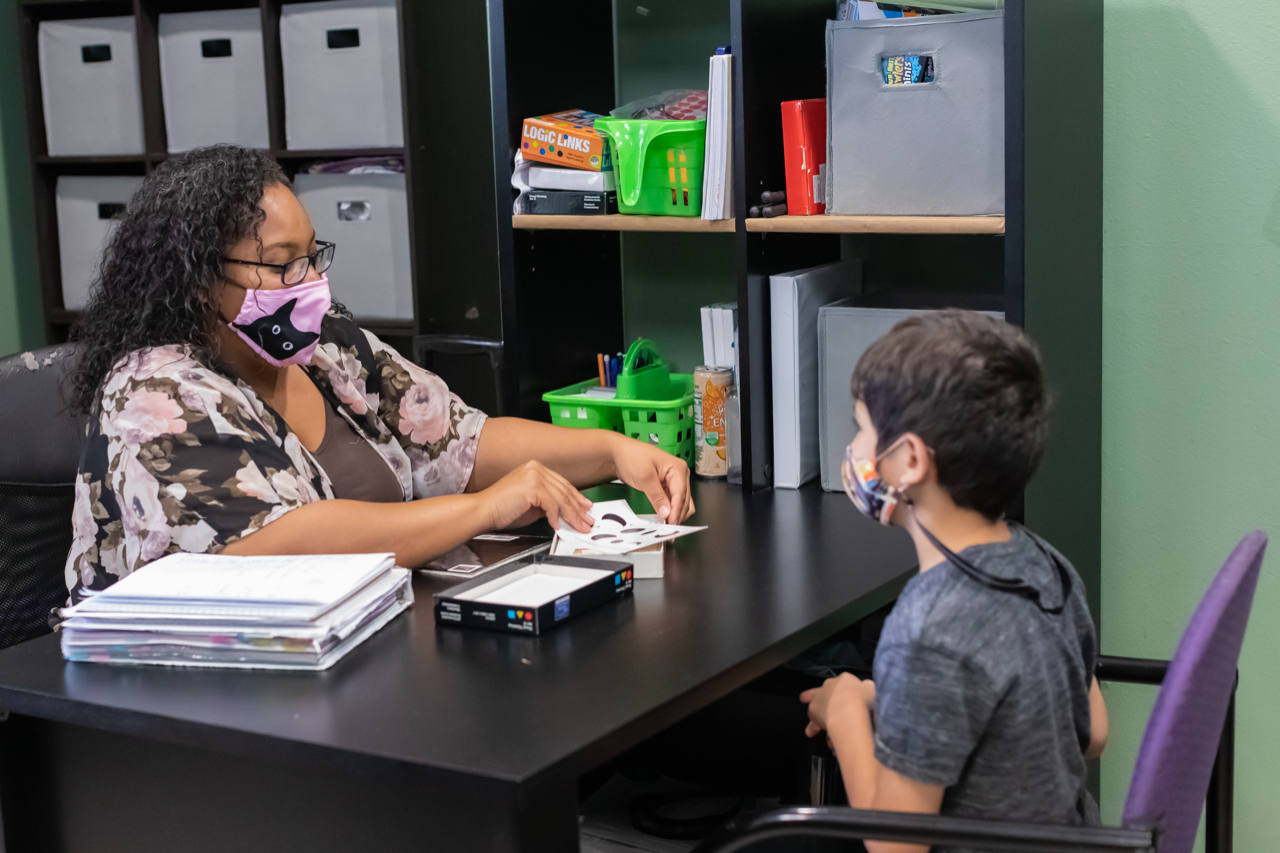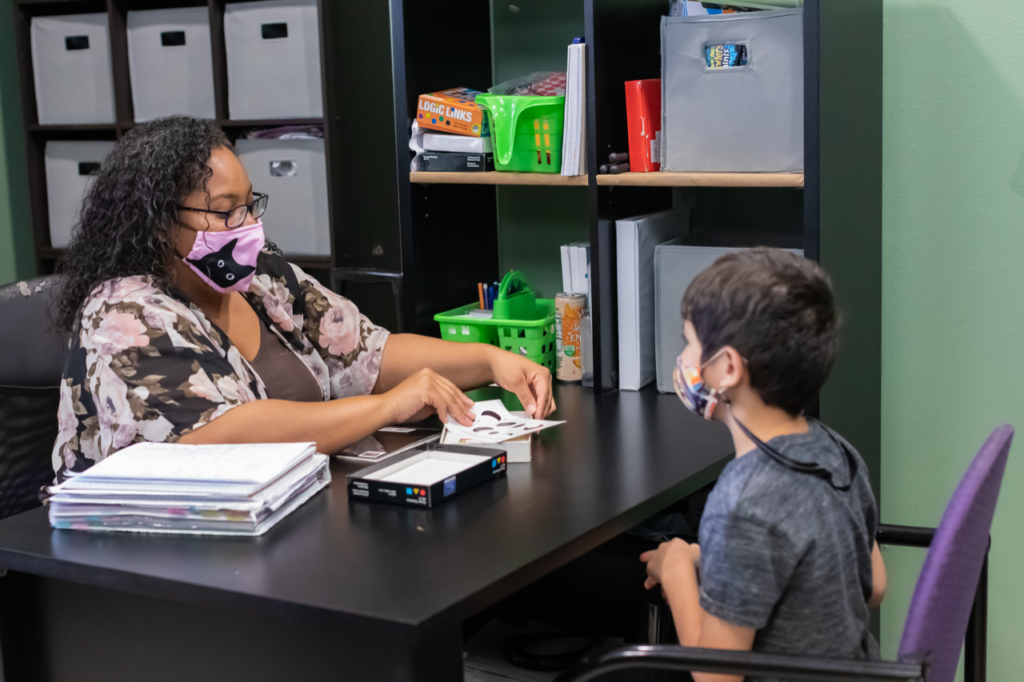
We are proud to share this guest post written by Erin Kirwan about her son’s experience at LearningRx San Antonio Northeast, where he learned about the seven cognitive skills and participated in a brain training program to strengthen them—not only changing his brain, but also giving new purpose to his life.
It’s a rite of passage as a parent to ask our children, “What do you dream of becoming someday?” More often than not, their reply will change. And change again.
When one of my sons was three he wanted nothing more than to become a firefighter. Or, was it Batman?
As my son grew, that dream shifted. Tilted. And repositioned. By middle school, this young man was pretty sure he saw himself as a future doctor. His actions often backed that up, too.
Once when a friend scraped up his knee pretty badly while climbing a shed, it was my son who attended to the injured boy. This scenario proved true around our home, too. If someone was sick or need medical attention, my son undoubtedly flew to the rescue. He had the makings of a doctor. At least in my not-at-all-biased parental eyes.
But as time went on, our son began to doubt his ability to one day get into medical school. “I’m not as smart as you think I am, mom,” he said to me on more than one occasion.
Having ADHD and being a social, athletic, and busy teen further aggravated his doubt. His grades were above average but not outstanding. So, as such, when our son was in high school, we decided to have his cognitive skills tested at LearningRx San Antonio Northeast, a brain training center.
At the time, I was not even familiar with such an assessment such as the Woodcock-Johnson IV Test of Cognitive Abilities or brain training. If we are being honest, I didn’t even know much about a person’s cognitive skills.
The Seven Cognitive Skills
There are seven, and they contribute greatly to how we think, learn, remember, reason, and pay attention. To explain a little about each:
- Attention. Did you know science now tells us that there are three types of attention skills our brain uses to enable us to stay focused and on task? These attention skill “subtypes” include sustained attention, selective attention, and divided attention. Read more about them here.
- Memory—Long-Term. This enables us to recall information stored in the past.
- Working Memory, a.k.a. Short-Term Memory. It enables us to hang onto information while in the process of using it.
- Logic and Reasoning. This unique cognitive skill enables us to reason, form ideas, and solve problems.
- Auditory Processing. This skill is crucial for reading because it helps us with analyzing, blending, and segmenting sounds.
- Visual Processing. This cognitive skill that enables us to perform tasks quickly and accurately.
- Processing Speed. This allows us to perform tasks quickly and accurately.
Our cognitive skills work together to take incoming information and move it into the bank of knowledge we use every day at school, at work, and in life. A cognitive skills assessment offers answers about how and how well and individual’s brain works.

Cognitive Skills Assessment
For a parent, the test and its results are like a window into your child’s brain—its strengths and weaknesses.
Such a test can provide a “wow!” or “a-ha!” moment. It certainly did for my husband and I—and our son.
What did we learn about our son’s seven cognitive skills? First, our son tested lowest in the areas of working memory and processing speed. Seeing a graph on paper of his ability in these two areas provided my husband and I with confirmation. His results were pretty consistent with someone who struggles with ADHD. To this point, we were neither surprised nor upset that his score in these areas was weaker. Meantime, the rest of our son’s cognitive skills proved to be above average to very high. In fact, his visual processing and logic and reasoning were practically off the chart.
So why was this important to us?
Well, first, it made sense of some of our son’s past struggles in school. Second, looking at his results, it left us with several “what-ifs.” What if his weaker skills were as high as his other cognitive skills? It felt almost shameful that he could do so much with information received if only he could hold onto it longer! If only he could process that information, upon receiving it, faster! Imagine what his learning and thinking potential could be—in and out of the classroom.
It was interesting to watch our then 17-year-old digest this screenshot of his brain, too. The very first thing he said to us was, “Well, maybe I can pursue a career in medicine.”
Our son displayed an air of confidence just because he learned about his brain and abilities.
Did seeing the weaker areas of his brain frustrate or disappoint him? It did not. His test results actually had the opposite effect! Our competitive student-athlete became motivated by seeing an area of his brain that could be improved.
And that’s where brain training comes in, and came in, for our family.
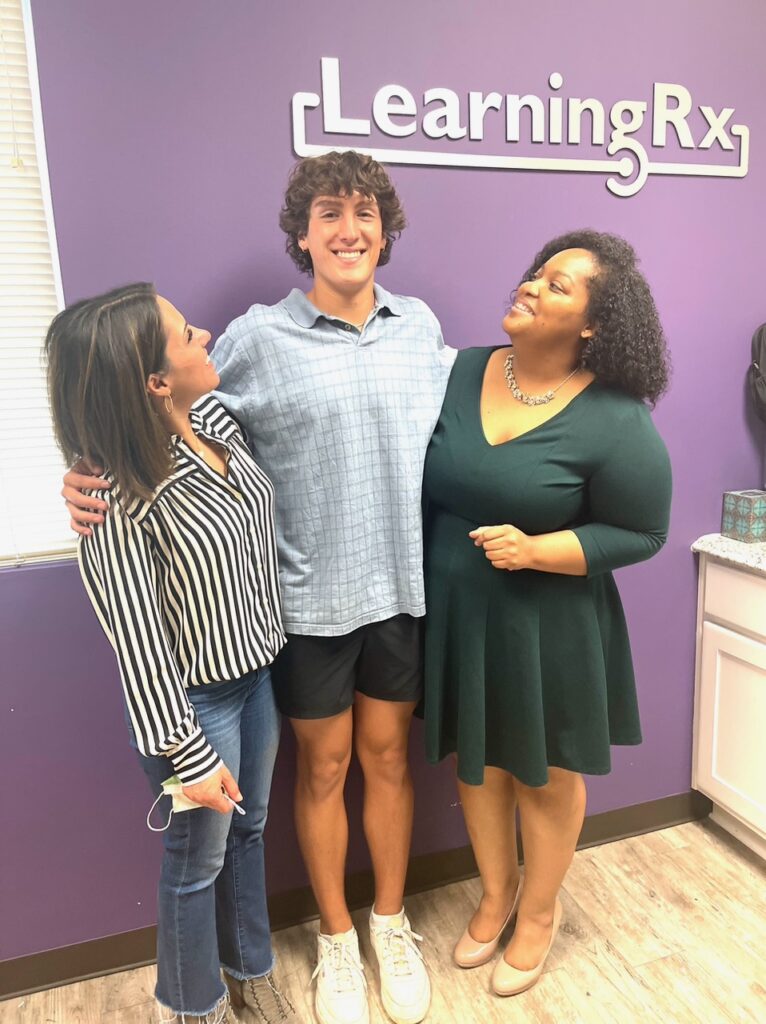
Brain Training
We went over the results of the test, with Gina Cruz, educational specialist, diagnostician, and owner of LearningRx San Antonio Northeast. Cruz explained to us that the unique LearningRx brain training program was designed over 35 years ago to help boost cognitive skills.
“The brain has plasticity,” explains Cruz. Neuroplasticity, a.k.a. brain plasticity, is the brain’s ability to change as a result of experience. In simpler terms, the brain is changeable.
How cool (and hopeful) is that?
Through the right kind of brain training experience, weaker cognitive skills can grow stronger. Skills that are already strong to begin with can increase too. This concept of neuroplasticity and brain change has been studied, researched, and clinically tried for years. It has been utilized in the rehabilitation of traumatic brain injuries (TBI) and used with remediation efforts in those with learning differences such as attention deficit disorder, dyslexia, dysgraphia, and autism spectrum disorder (ASD).
Hearing this, my family was inspired. My mom gut told me we had to give brain training a try.
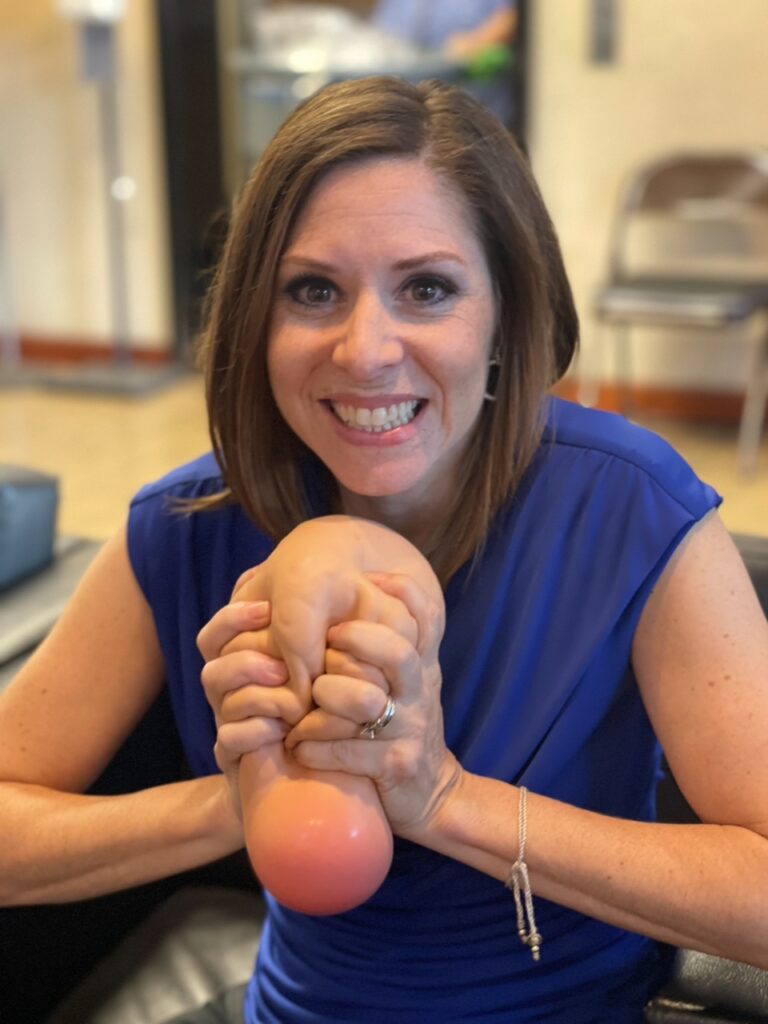
New Purpose to Our Son’s Life
The insight awarded to us by learning about our son’s cognitive skills and a program to strengthen them left us feeling even more excited about our son’s true potential.
So, between between August, 2021 and February 2022, our son underwent brain training with Gina’s team at LearningRx San Antonio Northeast. At his post brain training re-assessment, our son increased his IQ by 29 points. He actually tested at what is considered Mensa level.
Today, he is finishing up his freshman year at a small private university in Nebraska. He plays football and is double-majoring in biology and business. And yes, he has his eyes set on applying to medical school in the not-too-far future, thanks in part to a single moment of self-discovery at the most cerebral level.
Learning about the seven cognitive skills and a program to strengthen them not only changed our son’s brain, it gave new purpose to his life.
Charter Moms Chats
Watch Gina Cruz, Owner/Director of LearningRx San Antonio Northeast, speak with Inga Cotton on Charter Moms Chats on May 2, 2023 at 1:00 PM Central live on Facebook and YouTube.
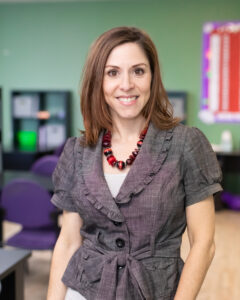
Gina Cruz is the owner of the LearningRx San Antonio NE Brain Training Center which works with individuals from 4 years to 99+. She has been actively involved in the field of cognitive science for almost 17 years. She and her husband have lived in San Antonio most of their lives and have two adult sons. Gina has an Educational Specialist Degree, a Master’s Degree in Special Education, and a certification as an Educational Diagnostician. She is currently finishing up her doctorate degree and is working toward her Ph.D. candidacy in Educational Psychology. Formerly, she was an elementary, special education, and Montessori-certified teacher. Having worked with students with varying learning differences, she believes that all people have potential. It is her goal to strengthen the learning of those with learning challenges and give them the tools they need for success.
Read More About Cognitive Skills
- “What Are Cognitive Skills?,” LearningRx San Antonio Northeast
- “Woodcock Johnson Tests,” TestingMom.com
- “5 Essential Ways LearningRx Is Different From Other Brain Training,” Amy Lawson Moore, Brainy Moms
- “The Digital SAT: Tips from Lara Kilgore of Beyond Education,” Lara Kilgore, San Antonio Charter Moms, February 2022
- “Fight Covid Slide with Expert Resources,” Inga Cotton, San Antonio Charter Moms, December 9, 2020
- “Discussing College and Career,” Lisa Cunningham, San Antonio Charter Moms, June 30, 2020
